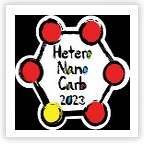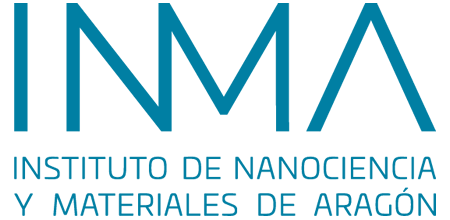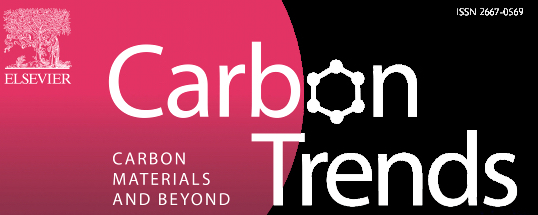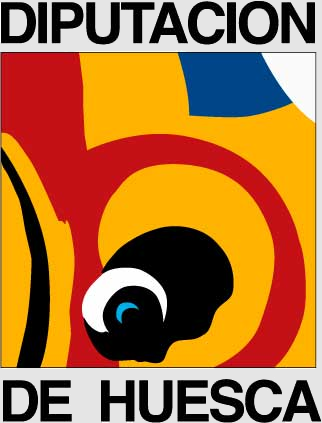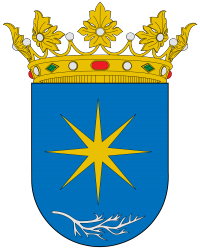Significant advances have been recently made in the science of nano-carbon materials (nanotubes, graphene, nanodiamonds, fullerenes, nanoporous, cyclic nanotube rings (CPPs) and ribbons …). These developments do not only pertain to fundamental/basic studies but have also yielded tremendous progress in the development of technological applications. Following the steady growth and maturity of the field of nano-carbon research, which now includes significant industrial contributions, it becomes increasingly important for these communities to assemble and focus on scientific challenges.
The presence of dopants and surface modification in the otherwise pure carbon materials opens the possibility of tuning their properties (electronic, optoelectronic…) and in some cases in a controlled way. In addition, other layered inorganic materials, such as boron nitride, WS2, MoS2… are becoming increasingly important, due to properties absent in their pure carbon counterparts. This field of research is very dynamic and involves multidisciplinary areas ranging from chemistry, physics, materials science, and other prominent ones as biology and medicine due to the functional aspects of these nanomaterials. Thus, the impact of this field covers a significant number of potential applications as improved (bio)sensors, interconnectors (electronic), optoelectronic devices.
Following the success of the first three editions organized in
2013,
2015,
2017 and
2019,
HeteroNanoCarb23 will provide a unique forum for researchers, scientists, and engineers from different countries worldwide who are actively involved in the research on issues to disseminate their latest research results and development achievements. In addition to the exciting scientific and technological themes, the conference offers a platform to promote and encourage interaction among researchers for collaboration. To allow researchers from various stages of their career to take advantage of this event, the technical program will consist of a combination of invited, contributed oral, and poster presentations.
Program Outline
- Synthesis of pure and doped carbon-based nanomaterials (graphene, nanotubes, nanodiamonds, fullerenes) and heteroatomic ones (BN, WS2, MoS2)
- Growth/formation mechanisms of these nanomaterials
- Advanced characterization/spectroscopic studies (Raman, EELS, TEM, XPS, STS & other techniques)
- Spectroscopic (Raman, EELS, STS, IR) studies of these nano-objects
- Composite and hybrid carbon-based nanomaterials
- Nanoporous carbon materials (synthesis, applications)
- Transport, electronic, optoelectronic properties
- Mechanical, chemical and electromechanical properties of these nano-systems
- Functionalization, surface modification, and chemistry of nanomaterials
- Processing and Applications
- Multiscale modeling and computation in the above areas
Previous Years
For information about previous meetings, please see the websites for:
HeteroNanoCarb 2013,
HeteroNanoCarb 2015,
HeteroNanoCarb 2017 and
HeteroNanoCarb 2019.
Organising committee
Dr. Raul Arenal (chair)
LMA-U. Zaragoza and INMA, CSIC-U. Zaragoza
arenal@unizar.es
Dr. Chris P. Ewels (co - chair)
Institut des Materiaux Jean Rouxel CNRS UMR6502, Université de Nantes, France
chris.ewels@cnrs-imn.fr
Prof. Dmitri Golberg (co - chair)
Professor & Australian Laureate Fellow, School of Chemistry, Physics and Mechanical Engineering, Science & Engineering Faculty, Queensland University of Technology (QUT), Australia
dmitry.golberg@qut.edu.au
Prof. Vincent Meunier (co - chair)
Penn State University, USA
Vincent.Meunier@psu.edu
Prof. Angel Rubio (co - chair)
Nano-Bio Spectroscopy Group and ETSF, Universidad del País Vasco, Spain. Max Planck Institute for the Structure and Dynamics of Matter, Germany
angel.rubio@ehu.es
Advisory Committee
- Prof. Alan Dalton - University of Sussex, UK
- Prof. Yury Gogotsi - Drexel University, USA
- Dr. Dieter Gruen - Argonne National Laboratory, USA
- Prof. Arkady V. Krasheninnikov - Helmholtz-Zentrum Dresden-Rossendorf, Germany
- Prof. Philippe Lambin - University of Namur, Belgium
- Dr. Wolfgang Maser - ICB, CSIC, Spain
- Dr. Marc Monthioux - CEMES, CNRS, Toulouse, France
- Prof. Elena Obraztsova - A:M: Prokhorov General Physics Institute RAS, Russia
- Prof. Thomas Pichler - University of Vienna, Austria
- Prof. Odile Stephan (U. Paris-Saclay, France)
- Dr. Kazu Suenaga - AIST, Japan
- Dr. Nikos Tagmatarchis - (NHRF, Athens, Greece)
- Prof. Reshef Tenne - Weizmann Institute of Science, Israel
- Prof. Mauricio Terrones - (Penn U., USA)
- Dr. Jean-Loius Sauvajol - Montpellier U. - CNRS, France
Invited Speakers
Eva Andrei - Rutgers University, USA)
Vincent Bouchiat - Grapheal Company, France
Jean-Christophe Charlier - Universite Catholique de Louvain, Belgium
Silvia Giordani - Dublin City University, Ireland
Oliver Groening - EMPA, Switzerland
Ernesto Joselevich - Weizmann Institute, Israel
Joan Redwing - Penn State University, USA
Shengxi Huang - Rice University, USA
Alla Zak - Holon Inst Techn-HIT, Israel
Call for participation
Abstract submission should be done through here.
* Abstracts files should be in .doc or .docx format
* A complete abstract example and guidelines could be downloaded here.
* Abstract deadline (oral contributions): Sep 30th 2023
* Contributed talks selection: Oct 17th 2022
Sponsors
Registration fee information
The registration fee for this conference is:
Regular fee: 535 eur.
Students fee: 450 eur.
Pay by bank transfer
The registration fee must be paid to the account of the Centro de Ciencias de Benasque Pedro Pascual after your application has been accepted.
Ibercaja (account number): 2085 2310 3803 3004 4193
IBAN: ES44 2085 2310 3803 3004 4193
BIC: CAZRES2Z
Remember that your registration is complete only after the payment is made.
* Please, pay after your application has been accepted.
* Please, send a confirmation by e-mail to info@benasque.org.
* Please pay all bank charges
* Include as a subject in the transfer '2023heteronanocarb Your_Surname'
* In the comments section include:
Full name of the conference and your name.
Pay by credit card
Senior: Pay by credit card
Student: Pay by credit card
* You have to be registered.
* Please, pay after your application has been accepted.
*Cancellation Policy*
A 30 euro charge will be applied for cancellations made up to 10 days before the conference start date.
A no refund policy will be applied to cancellations made after this date.
Further Information.


